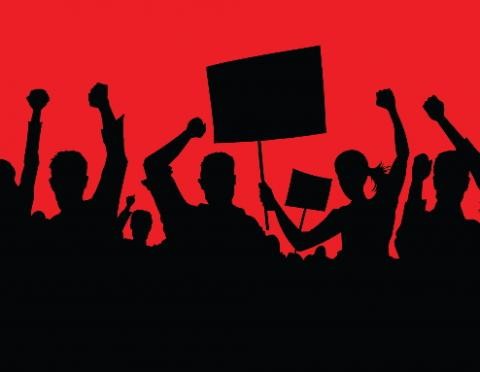Summer of 2019, boycott was a hot issue in South Korea. ST talks about the boycott in South Korea.-- Ed

On October 30, 2018, the high court made a final ruling that victims of forced labor should receive compensation from Japanese companies. At the same time, the Japanese government strongly protested the move, while also initiating action to regulate exports. Japan did not elaborate on the cause of the regulation, but experts generally see it as retaliation for the compensation ruling.
Japan’s METI (Ministry of Economy, Trade, and Industry) excluded the Republic of Korea from the comprehensive license for three items: fluorine polyimide, electron-beam resist, and etching gas. These items, the main materials used in manufacturing semiconductors and displays, have been almost entirely dependent on Japan. In the future, Japanese companies will apply for permission from the Japanese government, and undergo screening whenever they export such items to Korea.
Angered by Japan’s restrictions on exports, Koreans are boycotting trips to Japan and Japanese products. An official from the Japanese brand UNIQLO said the boycott is not serious. This comment sparked a boycott once it was known to Korean public. Eventually, the effects of the boycott began to emerge. According to the survey on the number of credit cards, the daily average number of credit card usage from July 3 to 10 decreased by 26.2 percent in relation to UNIQLO, and 19.7 percent in relation to MUJI, compared to consumption from June 19 to 26.
This is not the only boycott in Korea. In the past, the tyranny of the “Namyang Dairy”—such as assigning pregnant employees to contractual positions—was raised by the media, leading to a boycott of the companies for a certain period. On the other hand, “Sinjeon Tteokbokki,” which hired as a model named Gian84 who drew xenophobia descriptions in his webtoon and mocked the Me Too movement, has become the subject of a continuous boycott as the company is associated with controversial companies or figures, and such boycott has spread through SNS such as Twitter.
2019 is the year when “mining out” has expanded. Even small problems that would have been quietly dealt with in the past are now quickly becoming social issues. However, the latest boycott of Japanese products is different in the way that the public’s voluntary participation in Japan’s export regulations is largely achieved. It is also related to the painful history of the past, and has a different meaning because it contains the aspirations of the people, not their personal preferences. Unless the fundamental problems of both Korea and Japan are resolved, the boycott is likely to persist.
Park Jun-young (ST Cub-Reporter)
juninge@soongsil.ac.kr
Lee Ga-eun (ST Cub-Reporter)
nameun33@soongsil.ac.kr


